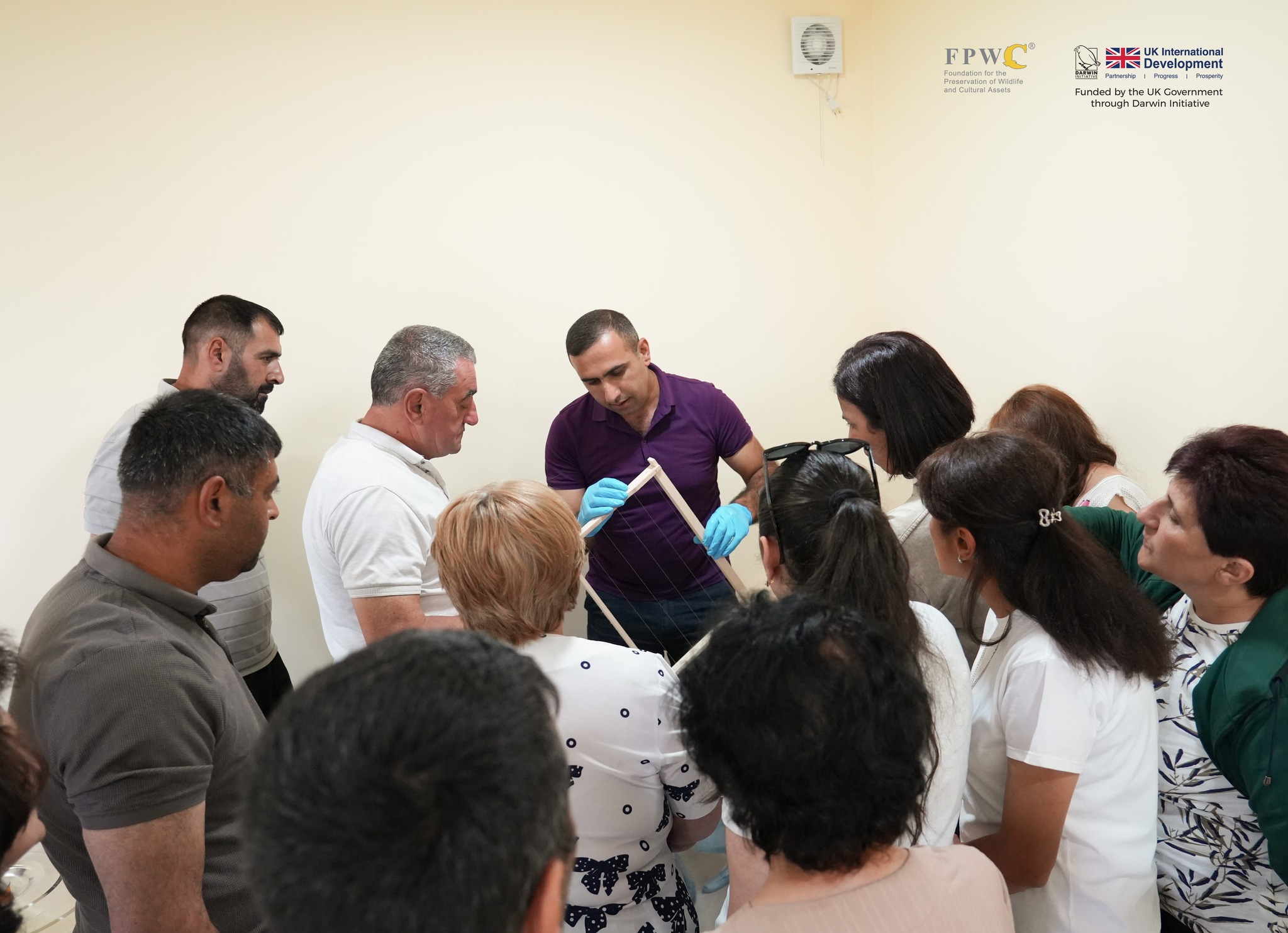
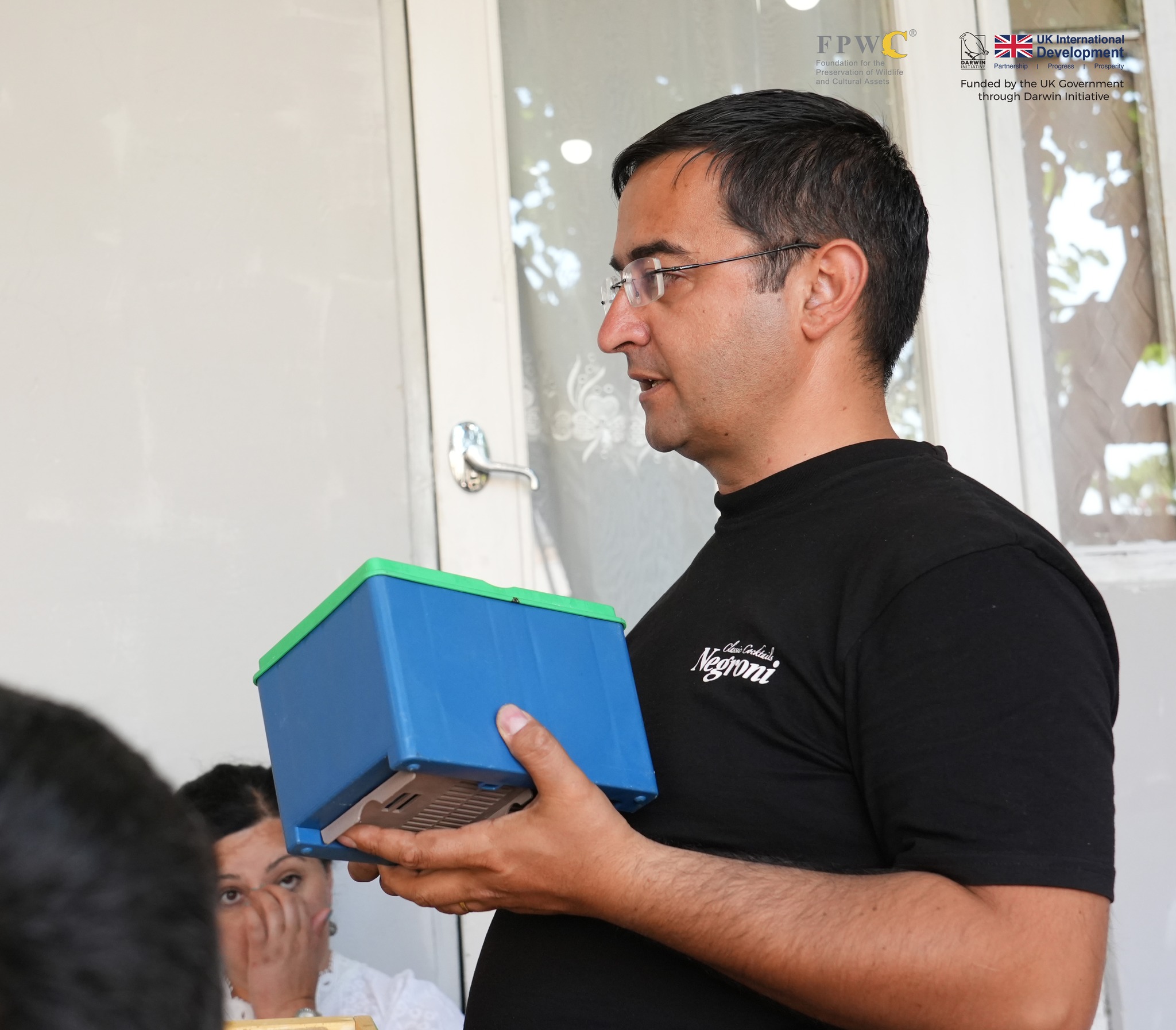
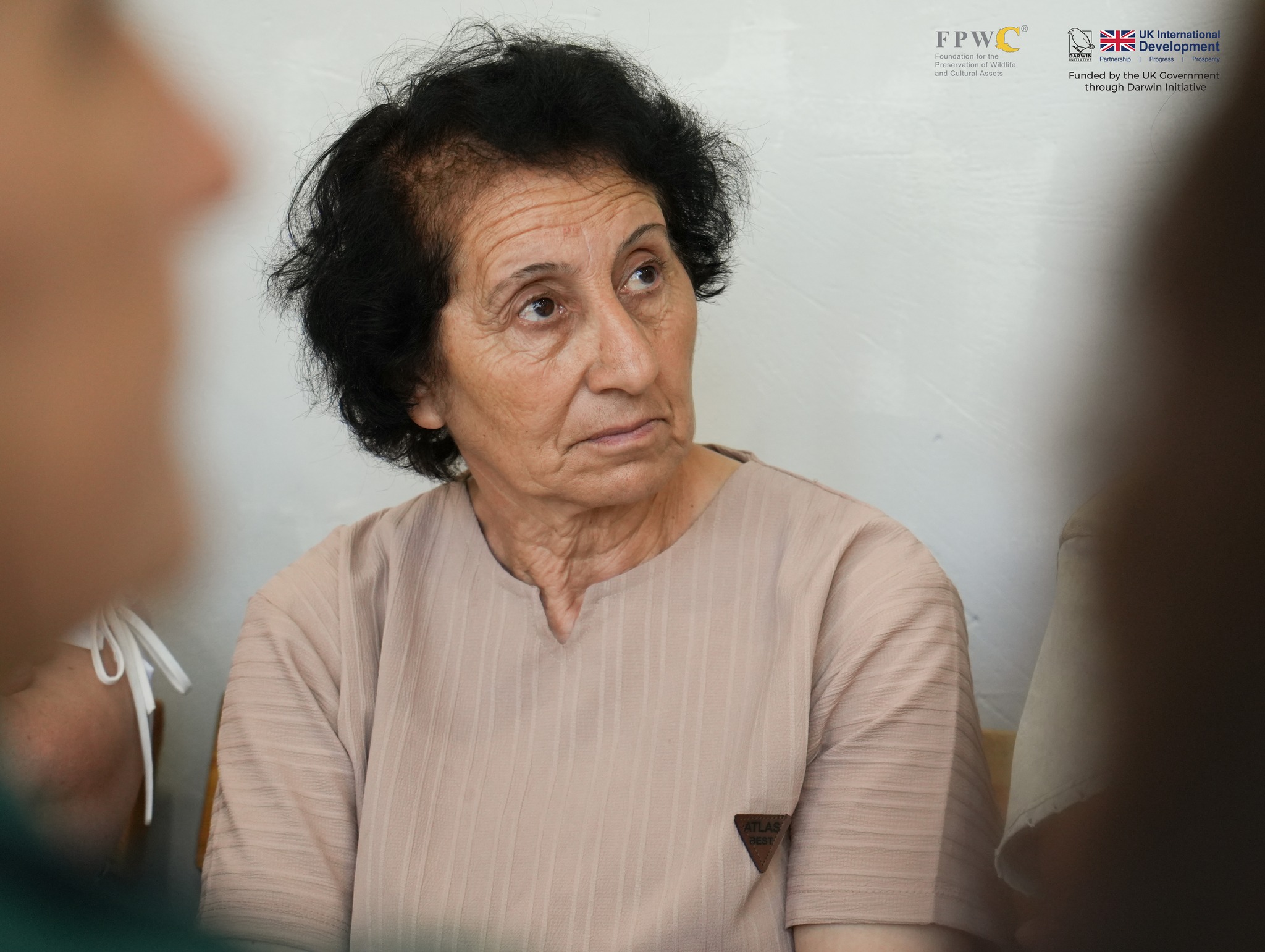
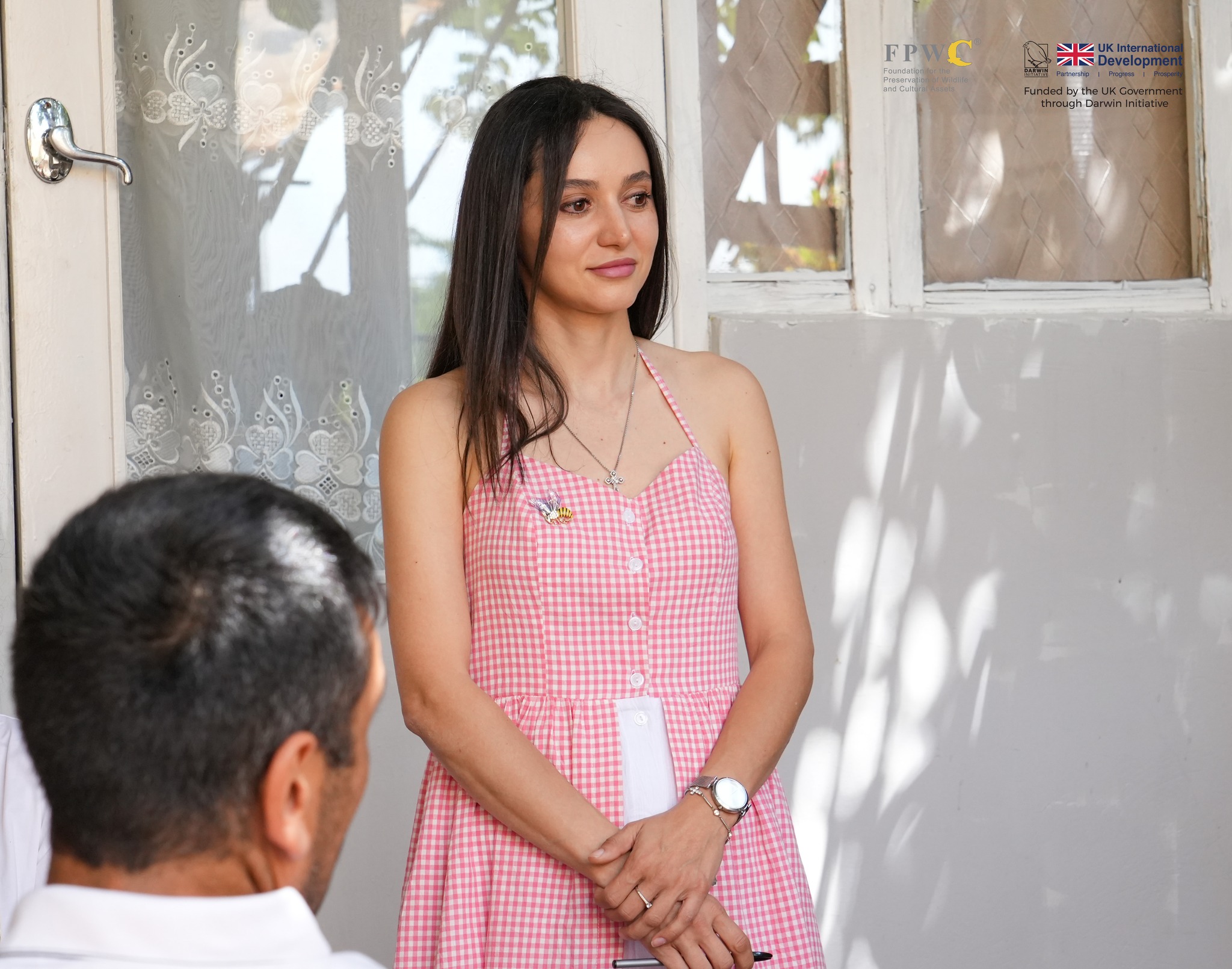
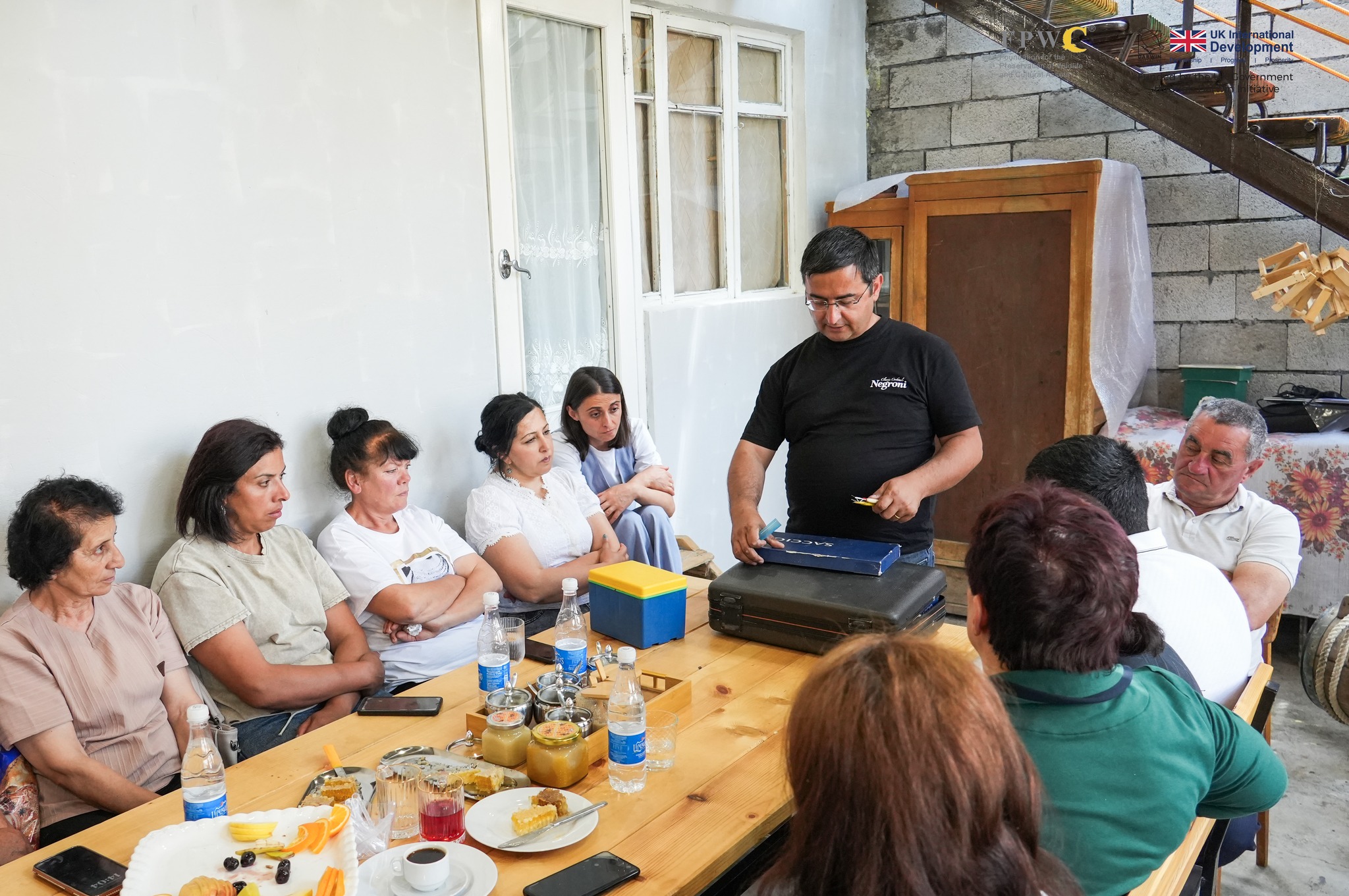
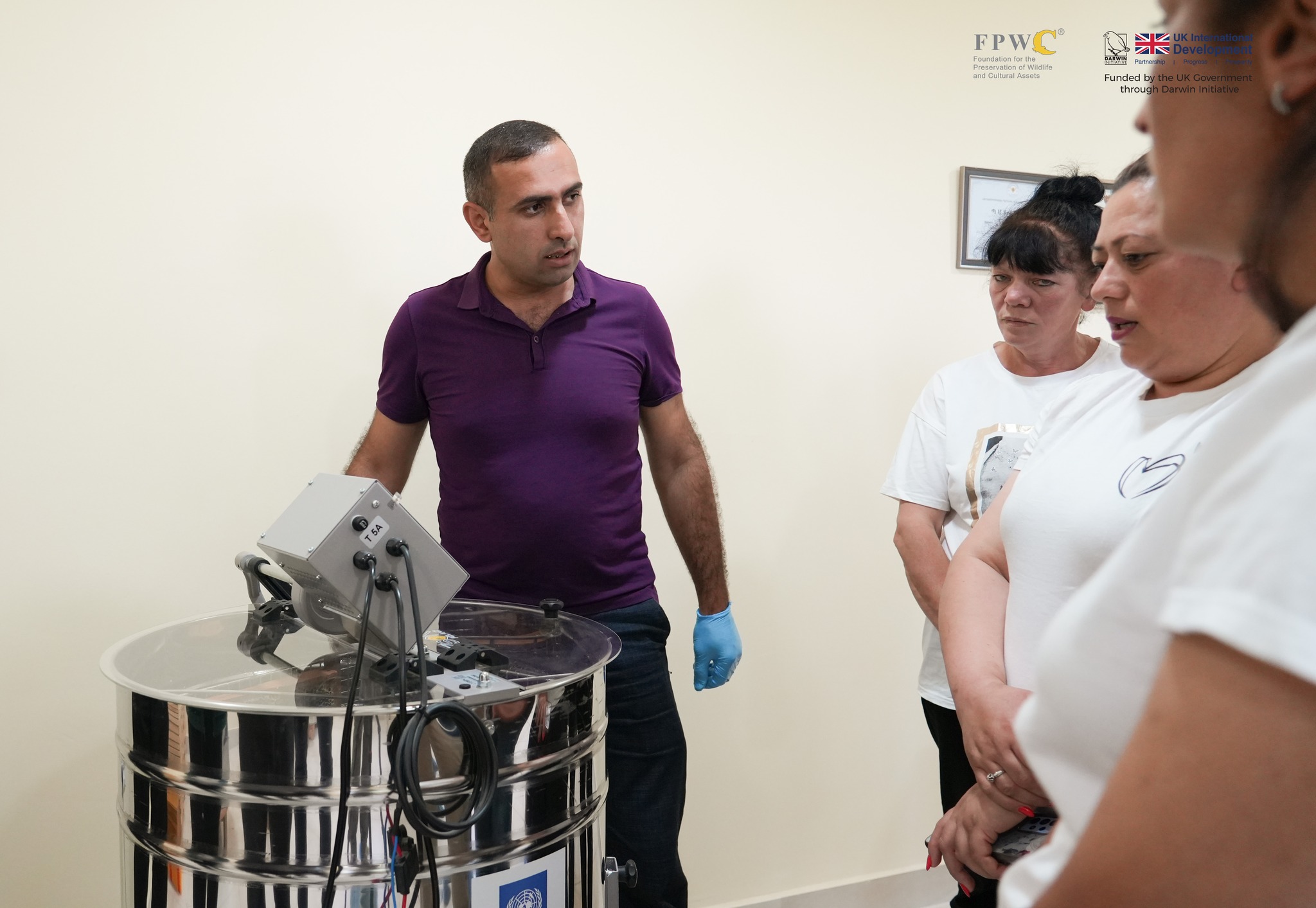
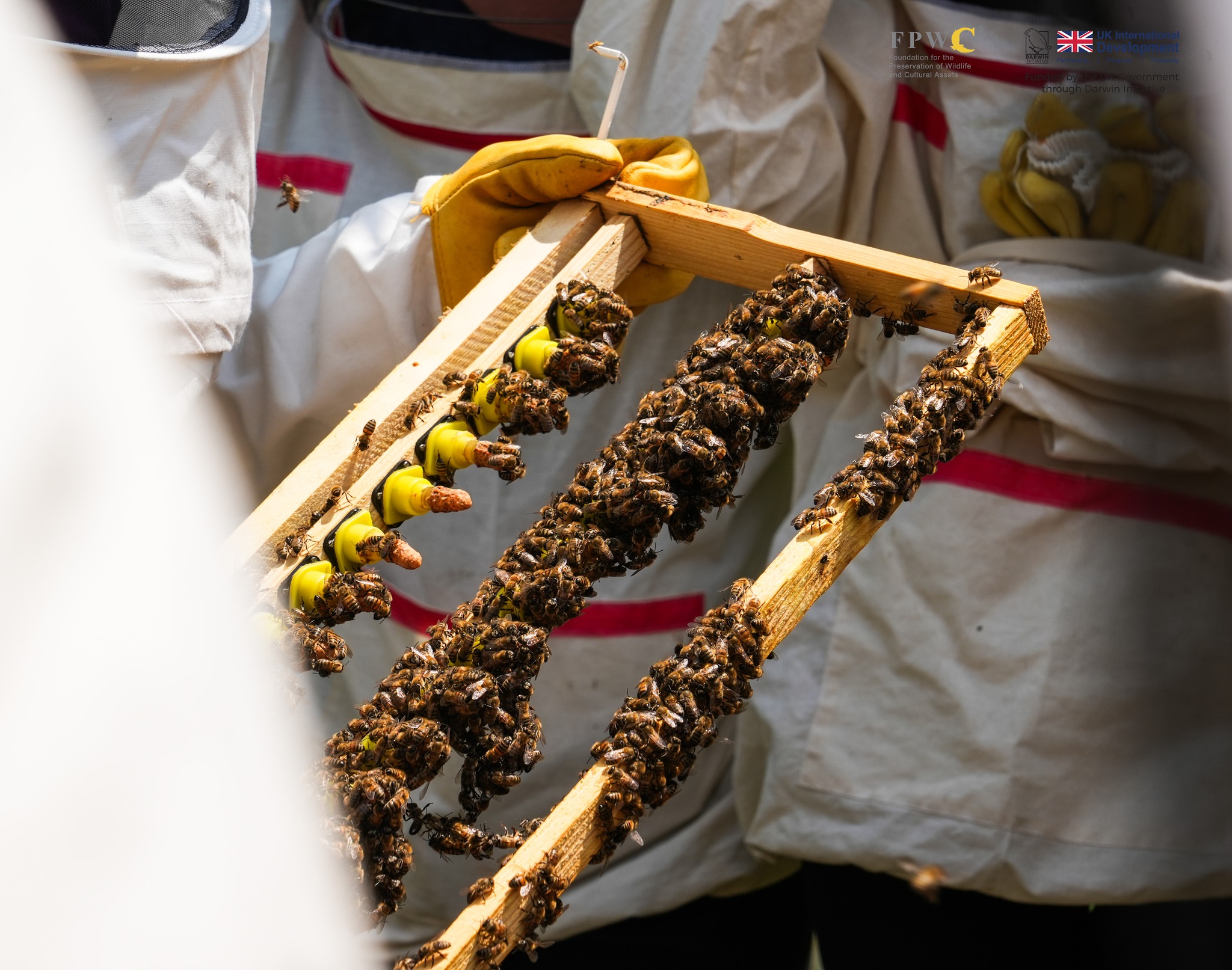

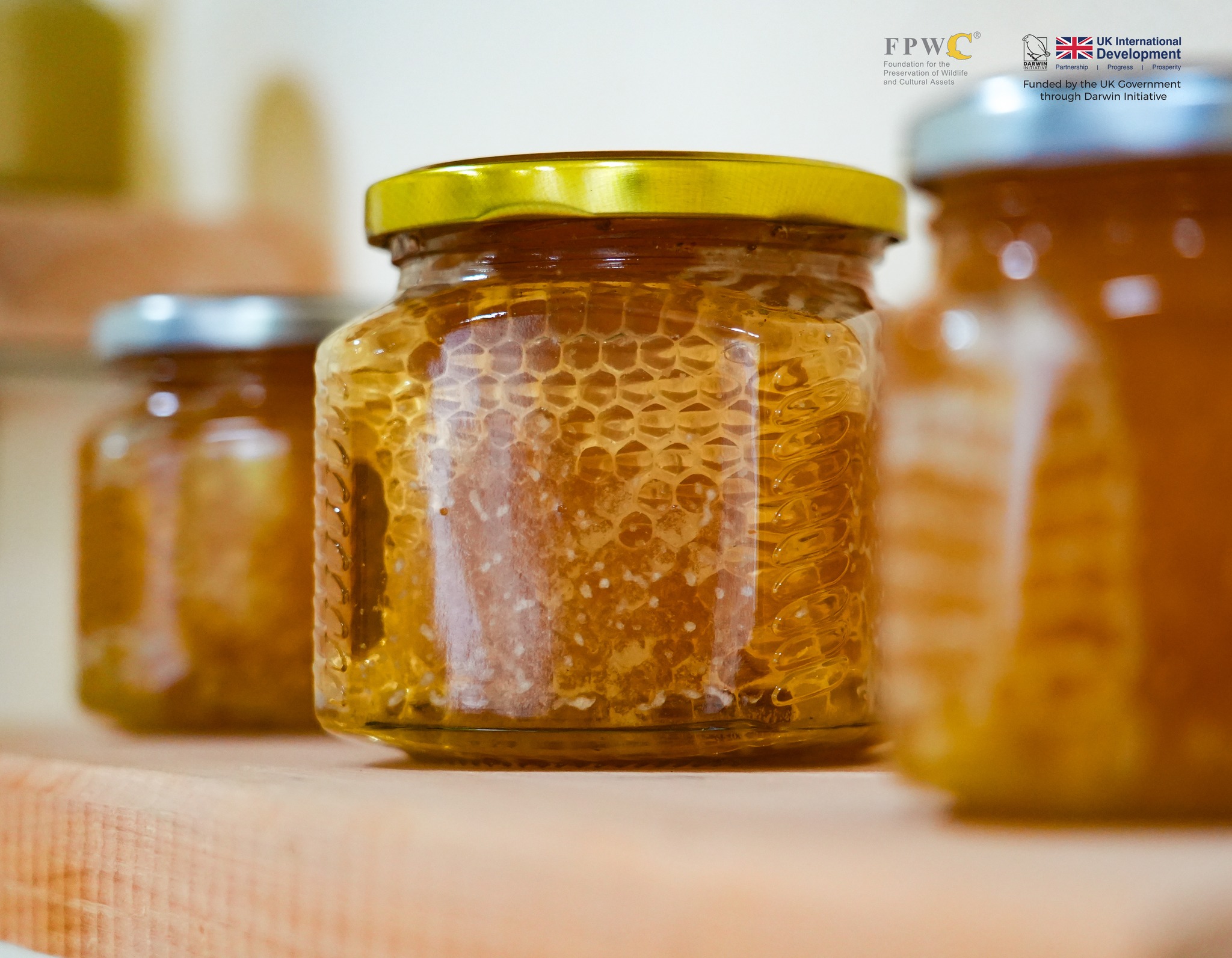
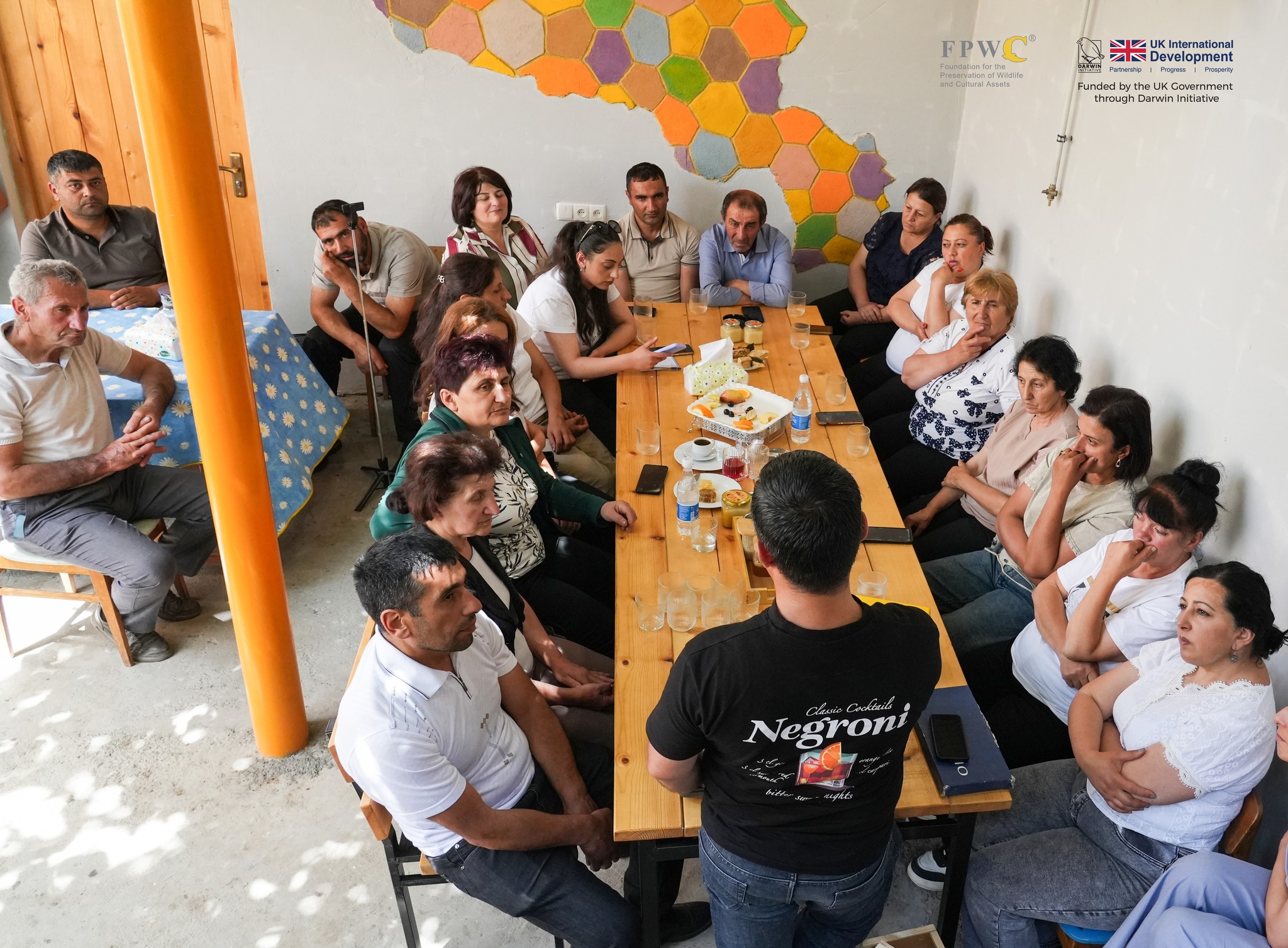
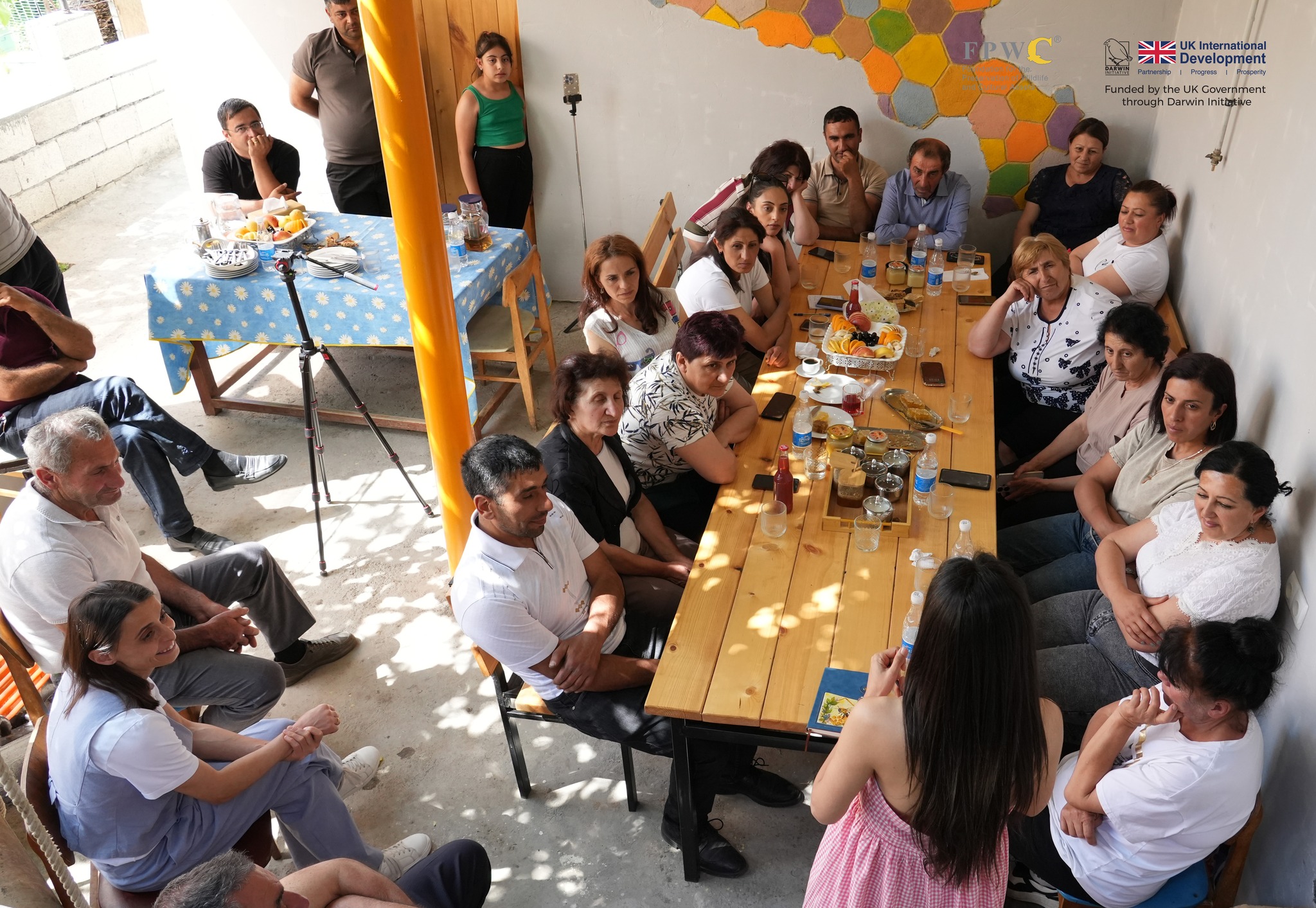
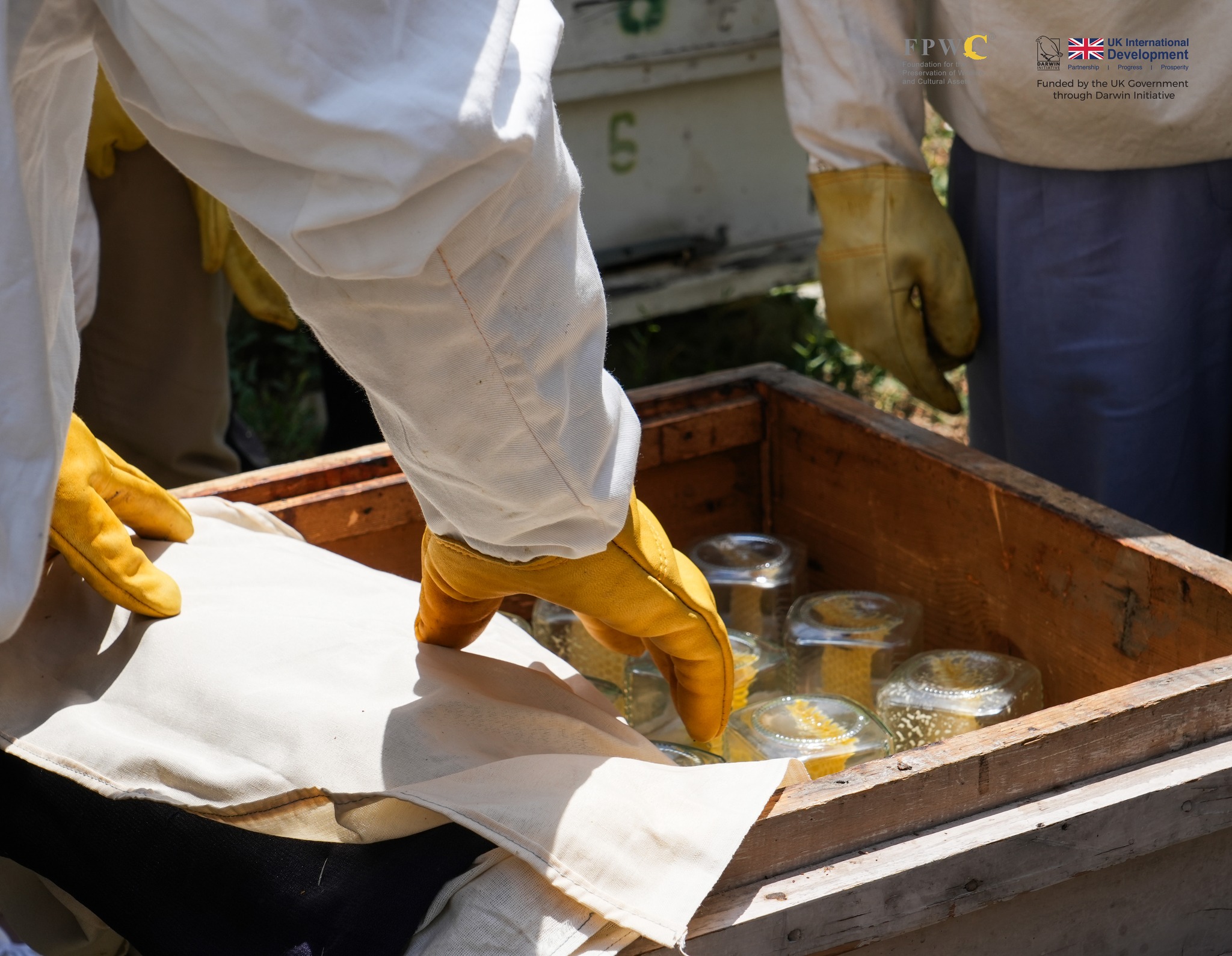
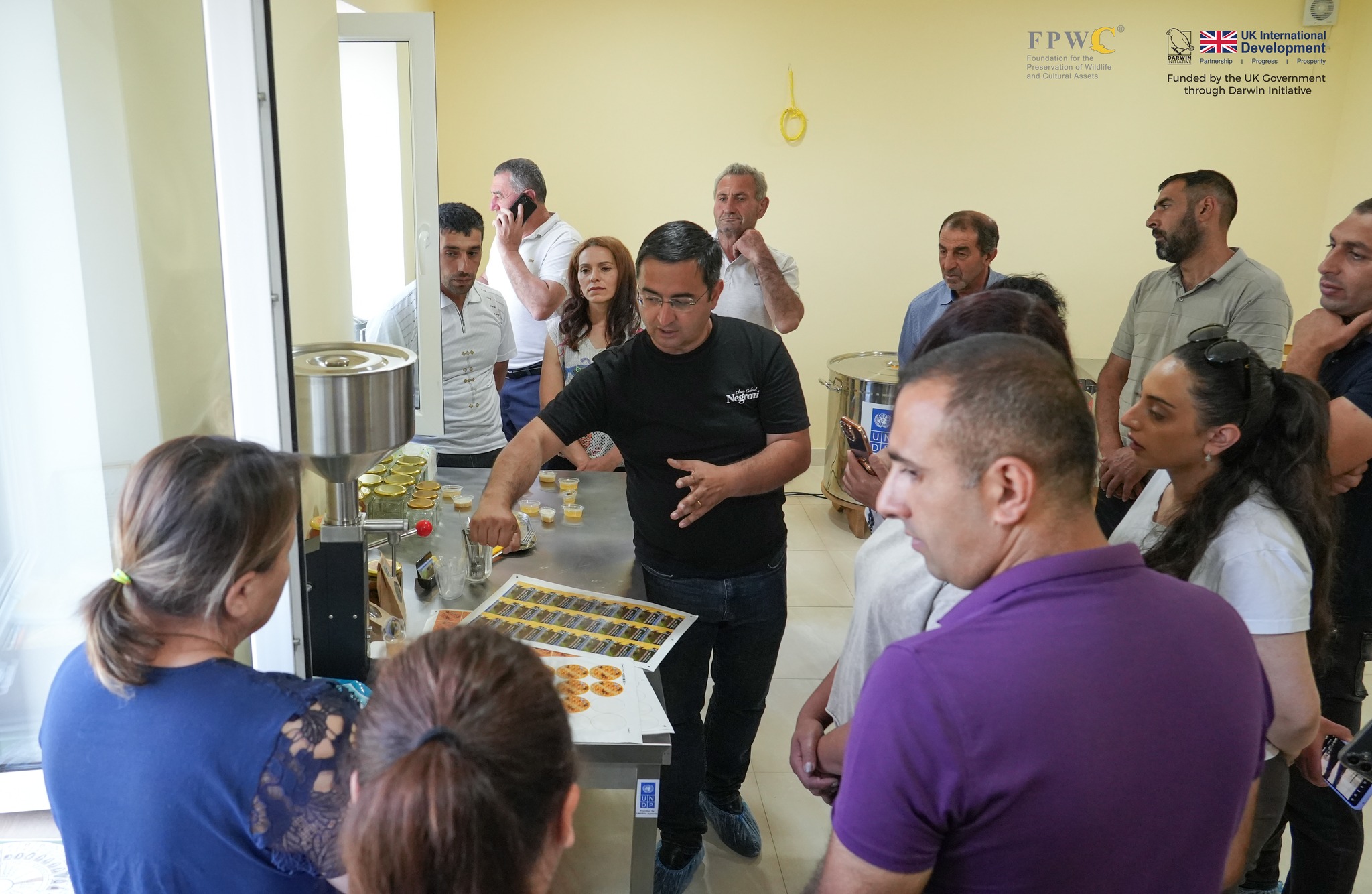
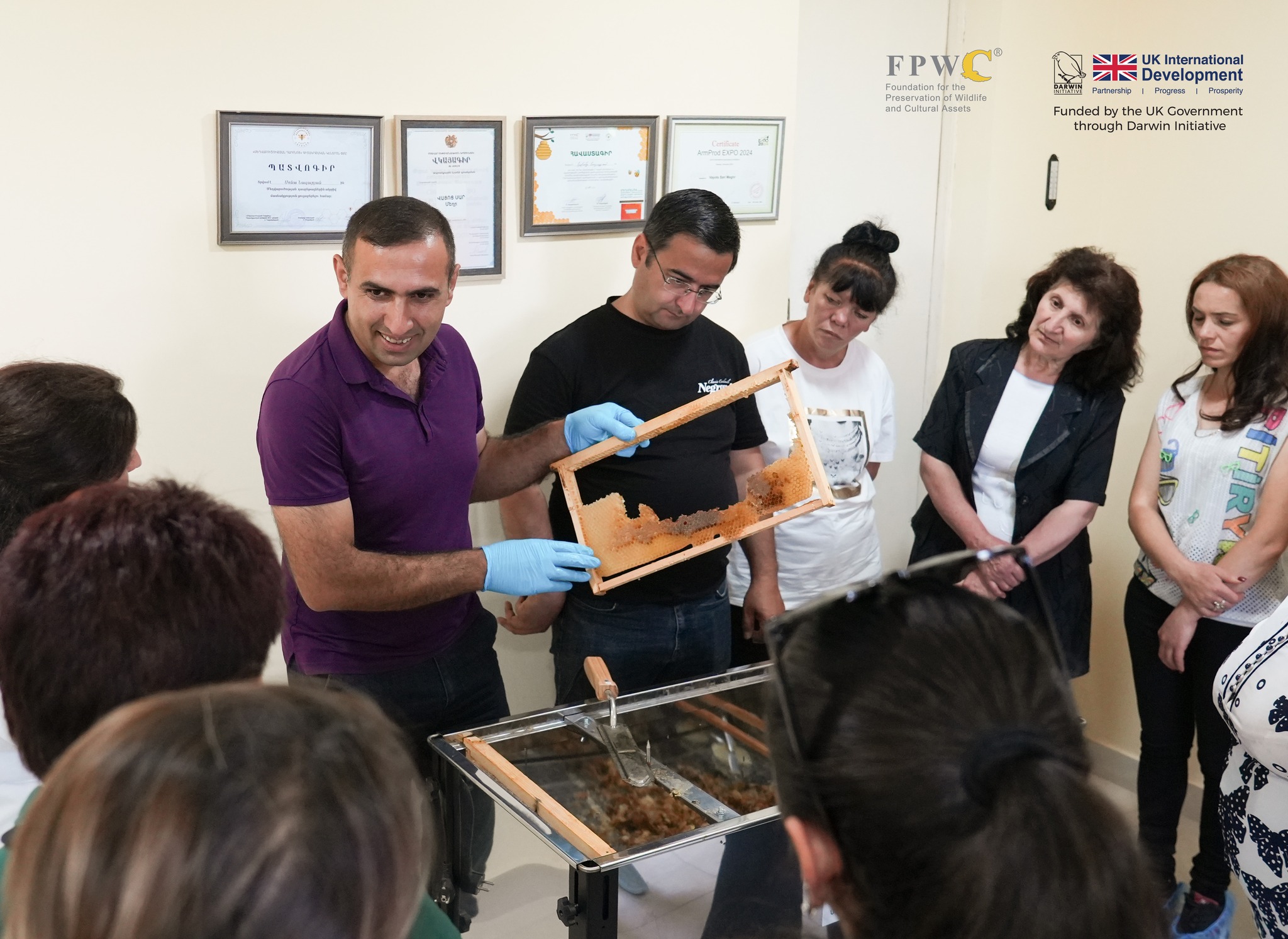
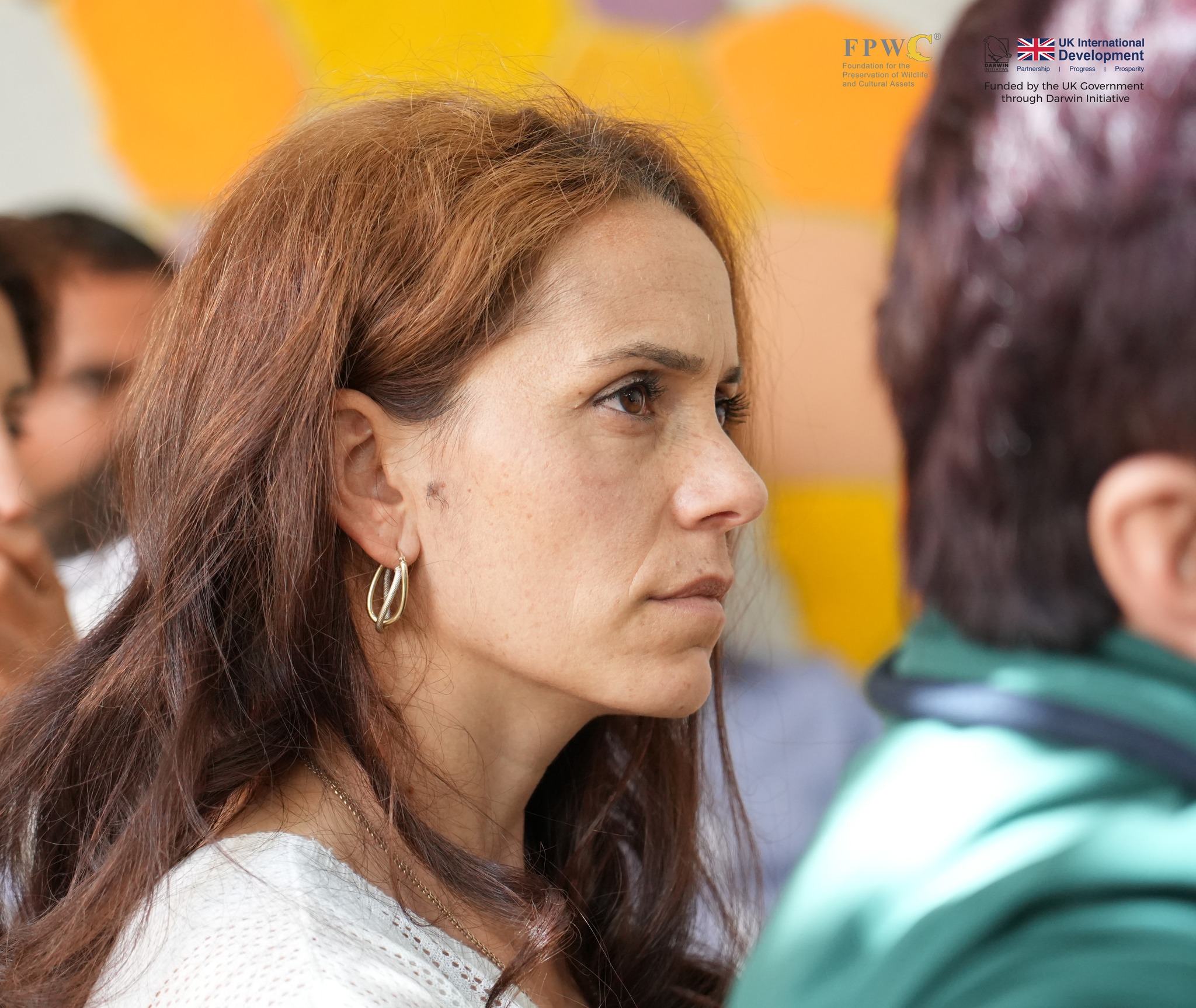
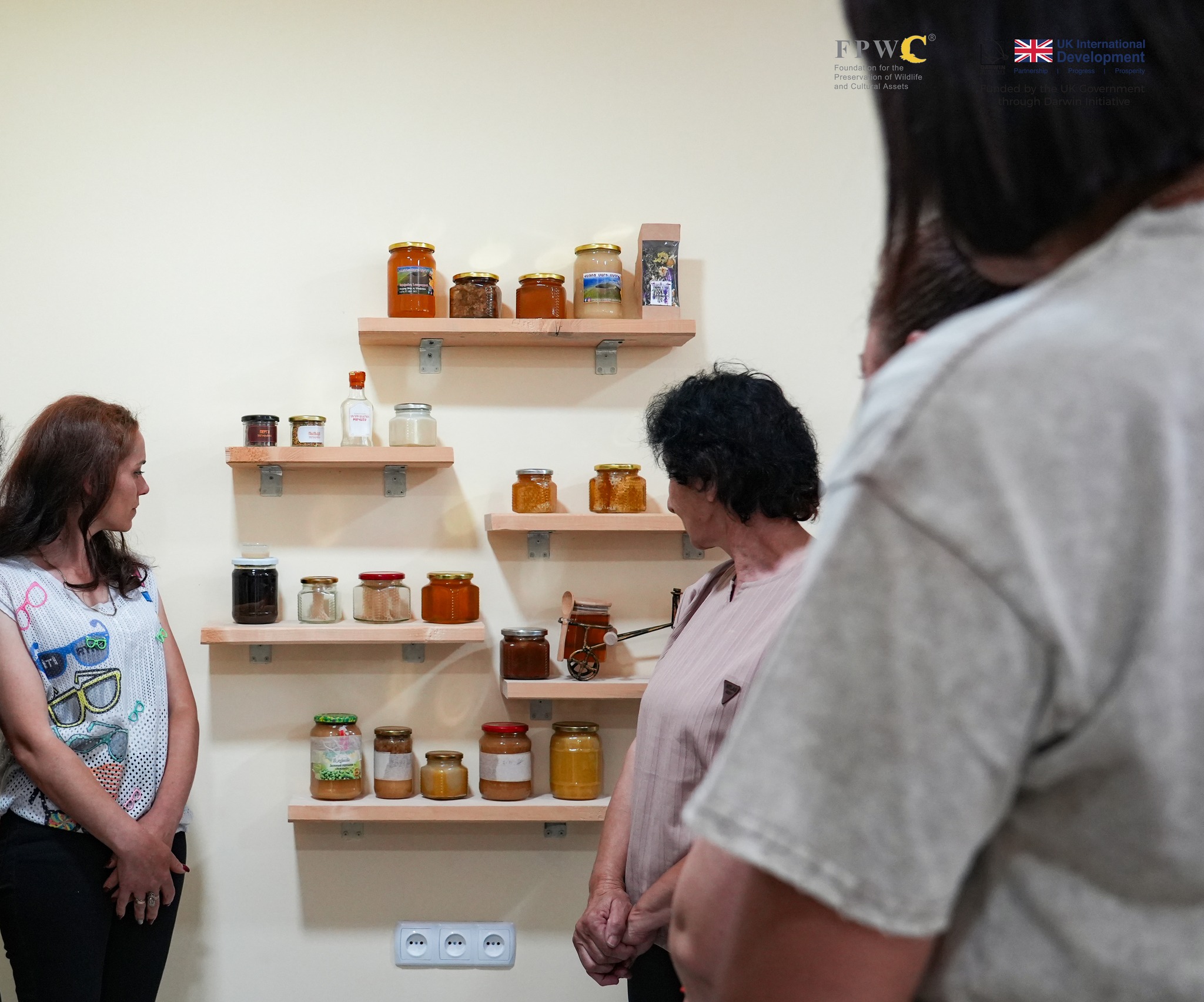
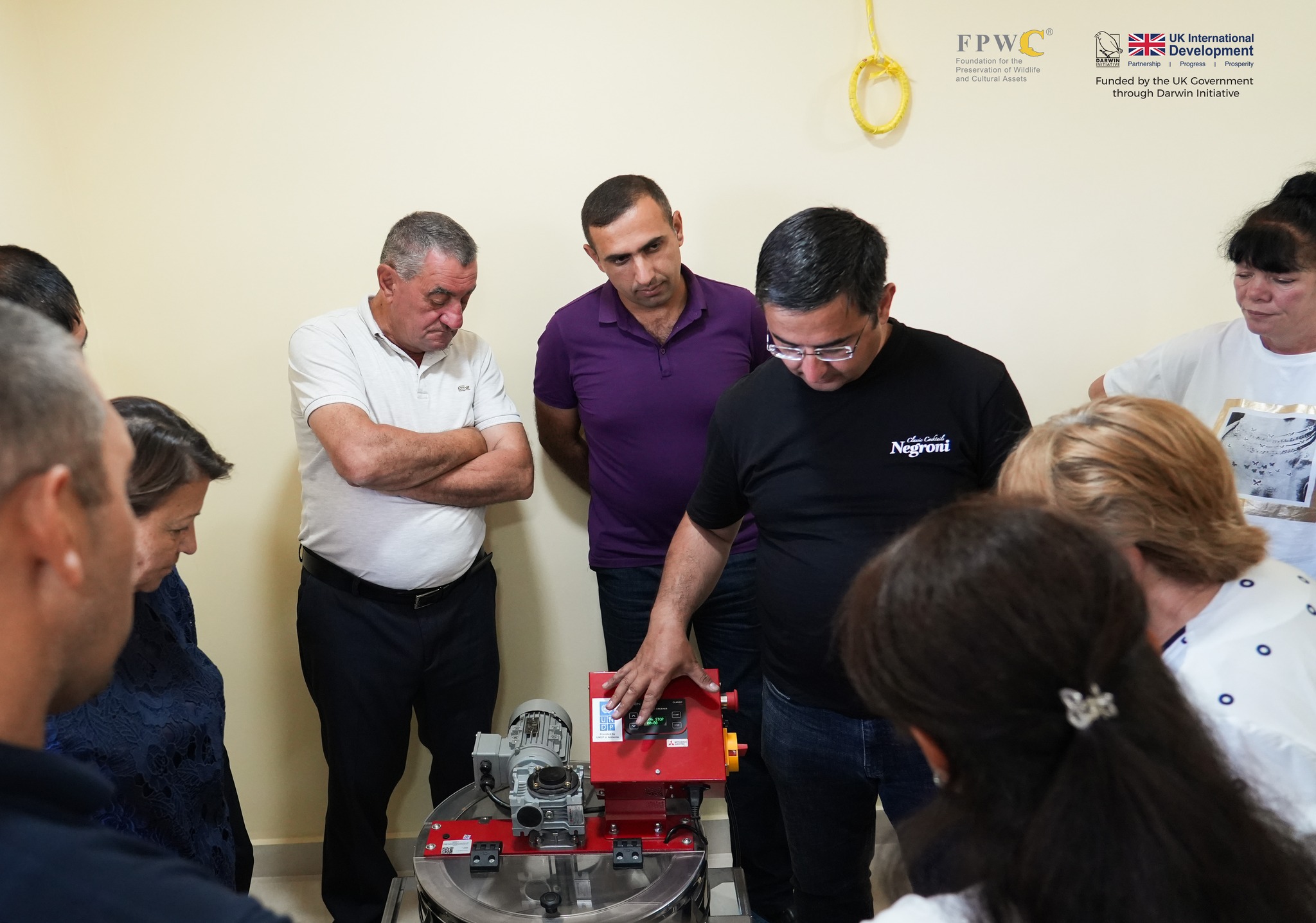
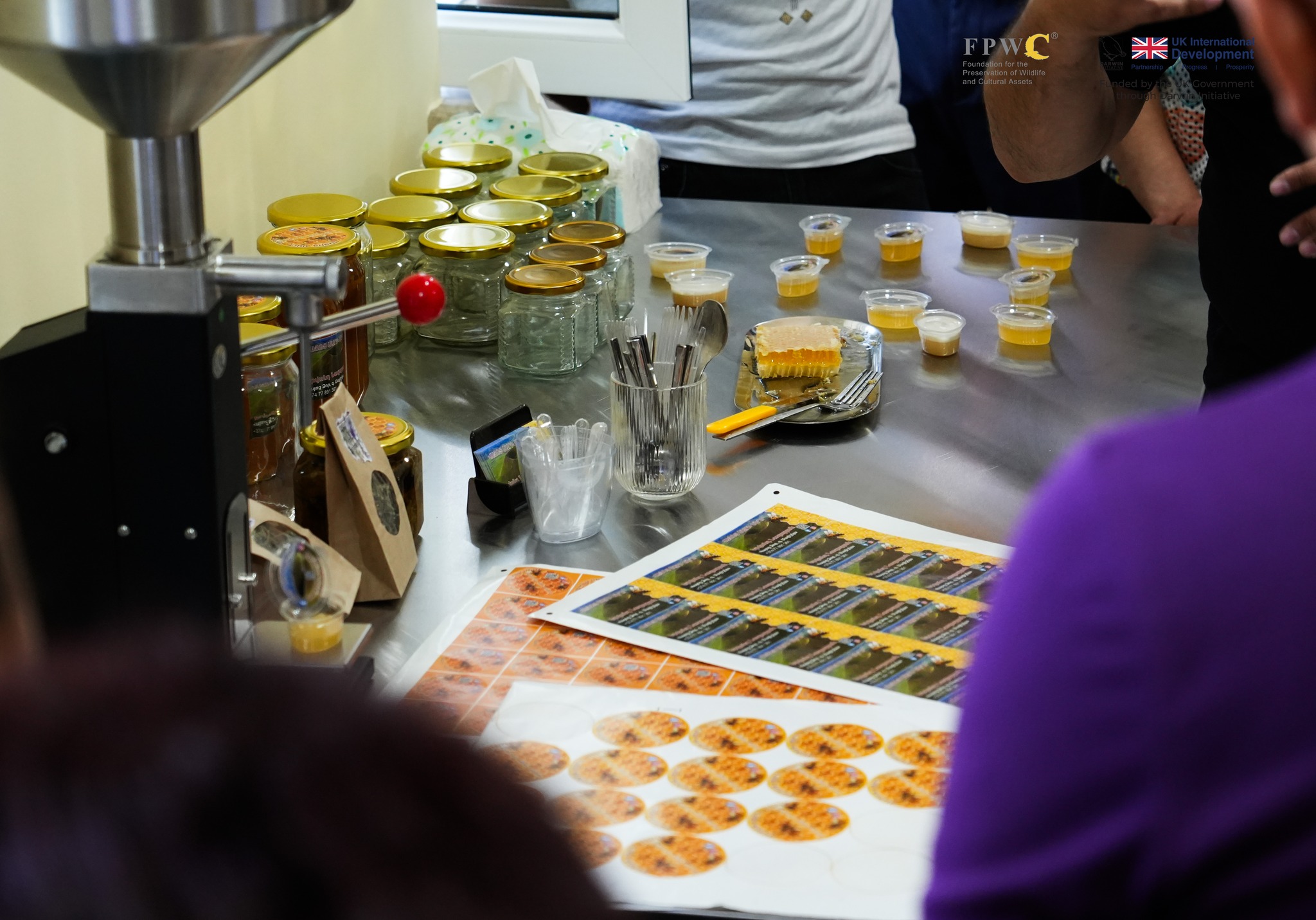
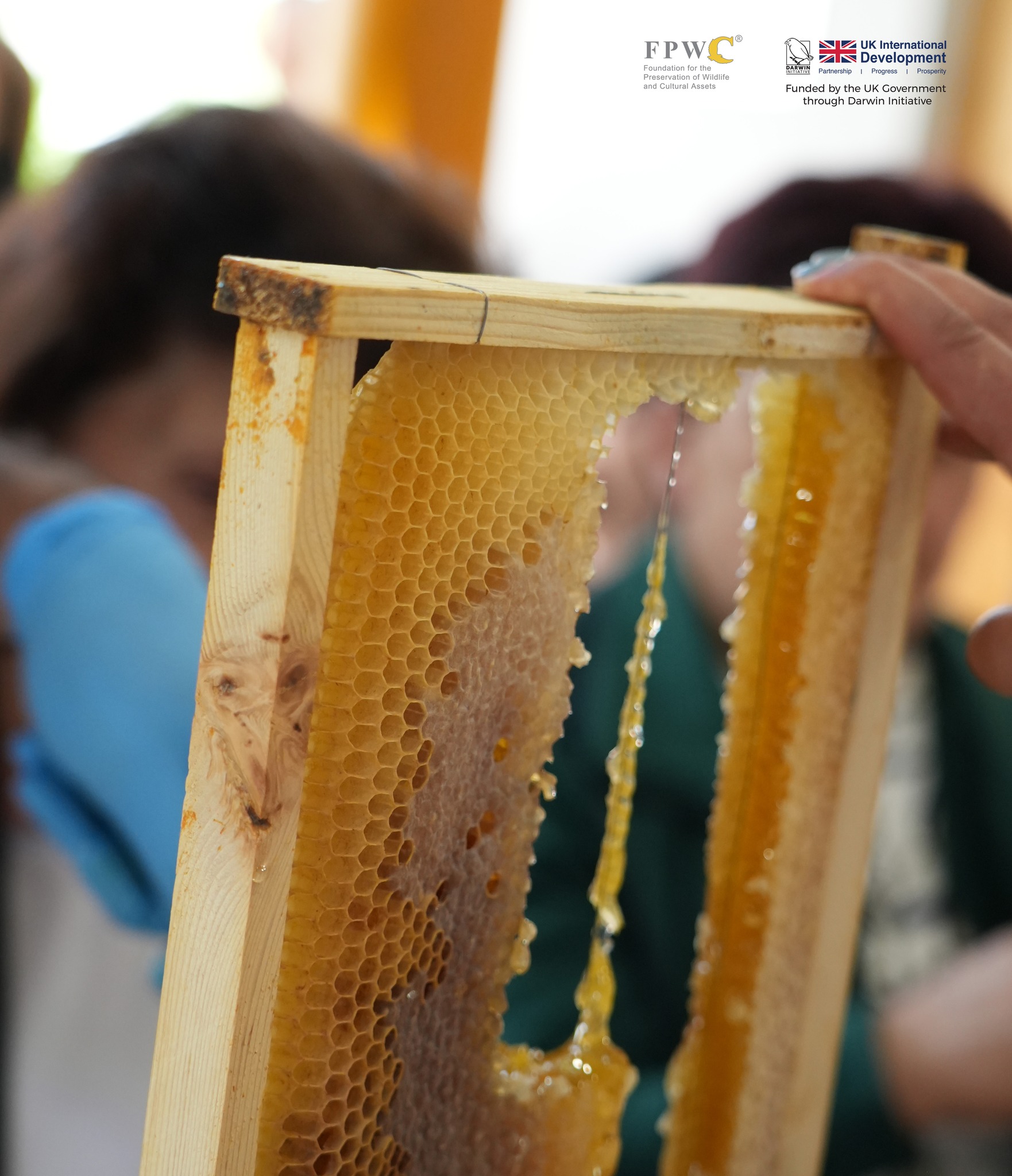
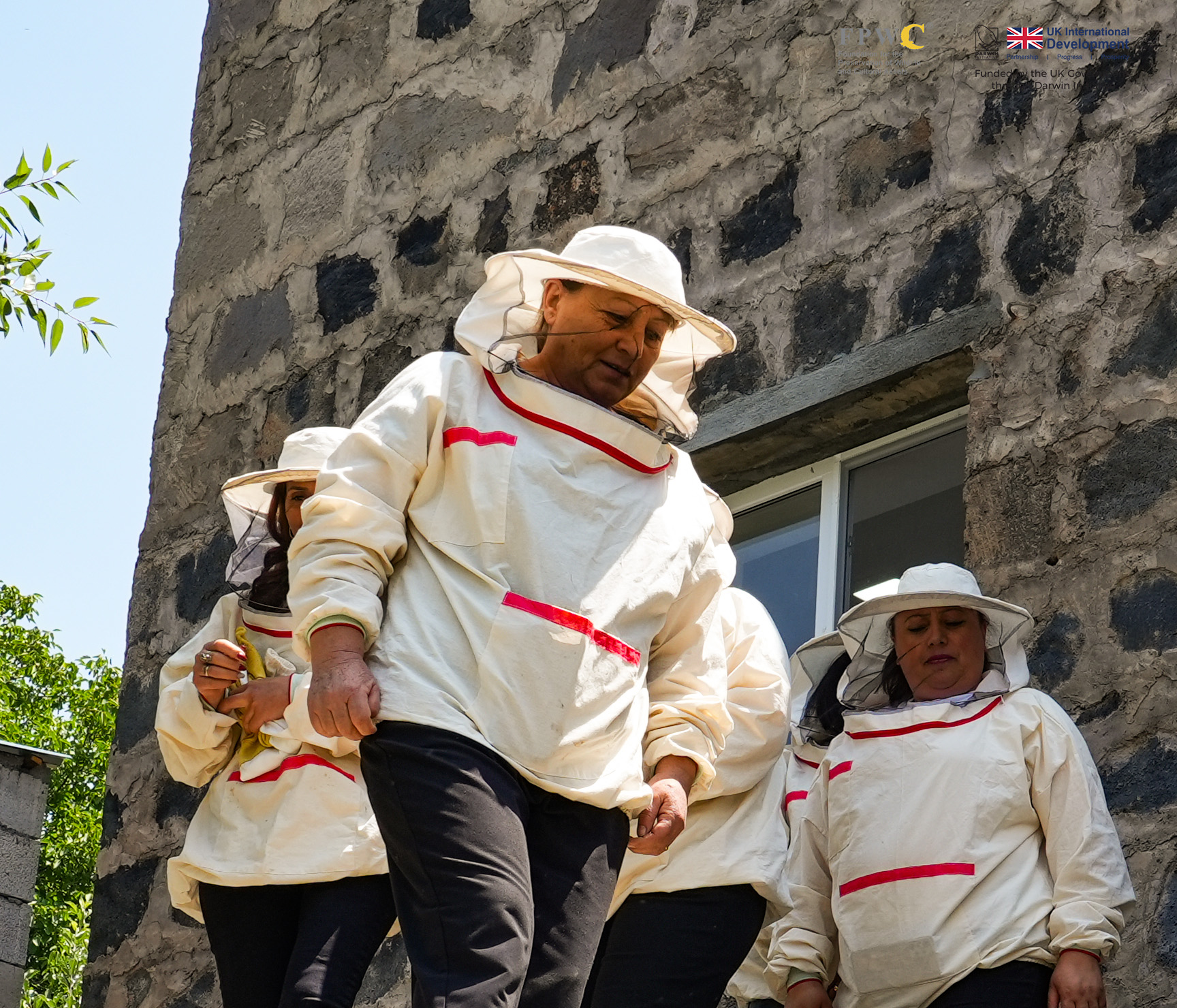
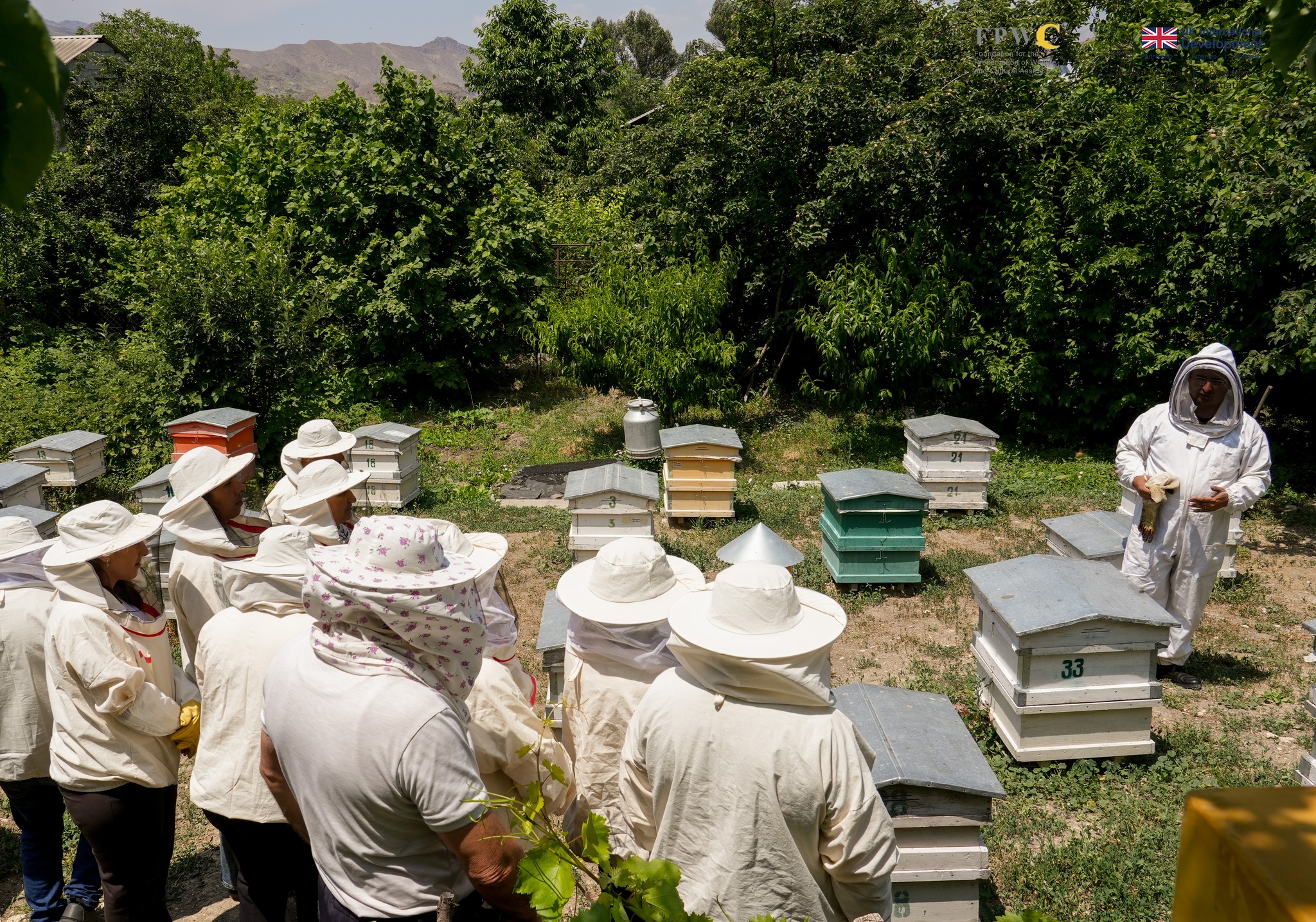
Published on 18/06/2025
In a vibrant display of community engagement and environmental education, the village of Malishka recently hosted a hands-on training and knowledge-sharing event focused on sustainable beekeeping. Organized within the framework of FPWC’s climate resilience initiatives, the session brought together local beekeepers, aspiring entrepreneurs, and experts to strengthen skills and promote eco-friendly livelihoods in the region.
Participants had the unique opportunity to visit the production site of “Vayots Sar Honey,” operated by experienced beekeeper Yervand Nazaryan. Guided by beekeeping specialist Tigran Sedrakyan, the group explored modern apicultural methods, exchanged insights, and acquired practical techniques to improve honey production and ensure hive health in changing environmental conditions.
“This kind of experience exchange is essential,” noted Sedrakyan. “It empowers beekeepers with knowledge that not only boosts product quality but also supports long-term business viability and ecological balance.”
Discussions centered on innovative practices in hive management, climate adaptation, and market access strategies. Newcomers to the field received mentorship on launching and scaling beekeeping operations, while more experienced producers explored ways to optimize output sustainably.
From Local Knowledge to Global Impact
This event is part of FPWC’s broader project, “Mitigating Human-Wildlife Conflict Due to Climate Change in Armenia,” funded by the UK Government through the Darwin Initiative. The project addresses the increasing tensions between rural livelihoods and biodiversity, particularly in regions where wildlife habitats intersect with human activity.
By supporting beekeeping as an alternative income source, FPWC not only reduces the pressure on vulnerable ecosystems but also fosters climate-adaptive rural development. Beekeeping acts as a bridge—linking conservation and community resilience—while raising awareness of nature’s interdependence.
Towards a Sustainable Future
Through workshops like the one in Malishka, FPWC reaffirms its commitment to ecological education, biodiversity protection, and the empowerment of local communities. These efforts reflect a core tenet of FPWC’s mission: to harmonize human activity with nature and to ensure that rural communities are not left behind in the face of climate challenges.
As Armenia faces mounting environmental pressures, small-scale, community-led initiatives like these serve as catalysts for lasting change—one bee, one hive, and one empowered community at a time.



















